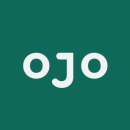To generalize the tech industry and its professionals would be to understate the vast array of areas they occupy. The sector is as much about the people, localities and specialties that define it as the organizations that fall under its umbrella — if not more so.
From Silicon Valley’s established track record to Colorado Springs’ emergence as an up-and-comer, every tech ecosystem thrives on its own specific blend of talent, technology and community.
Austin shines in this landscape, as tech talent from far and wide continue to be drawn to its unique offerings. Known for its “Keep Austin Weird” motto, the city nurtures innovation within a laid-back environment. Its tech scene is buzzing, fueled by community spirit and a quest for tech advancements.
From software development to AI, those who value collaboration, creativity and a supportive atmosphere have found a home in Austin, a place where vision, community and skill collide.
Tech professionals like Senior Engineer Adam Jarvis and Staff Software Engineer Colby Sites stand out in this environment. Their work boosts their teams and companies and enriches Austin’s tech scene, tackling complex problems, promoting growth and engaging with local communities.
These senior engineers at Wise and OJO, respectively, shared the daily challenges and successes that keep Austin’s tech ecosystem vibrant and strong.
Wise is an affordable, transparent platform for sending money abroad that significantly undercuts traditional banking fees to facilitate global living, working and travel with ease.
Do your days follow a familiar pattern or tend to be full of surprises? What are the must-do habits or key moments of each day in your role?
The engineering team at Wise follows a pattern of work called ‘sprints,’ which means we break up our time into blocks of two weeks and dedicate ourselves to one specific problem or build. This allows us to prioritize more effectively and work collaboratively to get solutions live for our customers as quickly as possible. Of course, the work we plan to do can change if we find a bug or a new issue arises, in which case we step in to find the root cause and solve it.
In terms of habits and key moments, I think it’s always good to understand how you work best. For example, I tend to work better on problem-solving in the afternoons. So, I often save more in-depth problems for after lunch, like coding or coming up with a new solution to an existing problem. That leaves my mornings free to clear out my inbox and deal with general paperwork and admin. Getting this out of the way early in the day helps kickstart my productivity and sets me up for the rest of the day.
I think it’s always good to understand how you work best.”
Finally, I recommend sticking to a structure once you find one. It helps you prioritize work and keeps you honest with yourself. It also helps with burnout management and keeping your workload sustainable.
How do you set your personal and professional priorities each day? What project are you most excited to be working on right now?
Aside from how I organize my mornings and afternoons, having a good sense of what I’m working toward is very important to keep me motivated. In terms of my personal goals, I regularly set time aside to create OKRs. I start by picking a topic and finding relevant metrics or statistics around that problem area while researching what can affect that metric. Once I start work, I monitor the metric and adjust as necessary. The OKR is complete once that metric trends in the direction I wanted.
Professional goals are often geared around my team and the other stakeholders I work with. Personally, I find that regularly sharing my plans and project status in a number of different formats is the most effective way to set goals and priorities that resonate with my team and the business. We use messaging platforms like Slack to get feedback from others and have daily standups where we share the current status of work, invite input and better distribute resources.
Right now, my primary focus is on making money move faster for our U.S.-based customers. Over 60 percent of payments made via Wise are now instant and arrive in under 20 seconds. Eventually, we want this to hit 100 percent.
Do you have any local spots or organizations key to your daily success? A favorite coffee spot fueling your work? A tech org you partner with?
This is a great question. In every country I’ve worked in, I’ve made it a point to find and explore different coffee shops where I can do some work. I’d try to check out a new place every weekend when I lived in London.
I’ve explored a few great places in Austin now, but my favorite is actually a smaller place up in Georgetown called 309 Coffee. It’s a bit of a journey out from the downtown Austin area, but often, I find that traveling that extra distance forces me to commit to whatever idea or work I have planned instead of giving up and heading home. They also serve a great espresso and a good Chai tea. Perfect for an afternoon of coding.
I have also found several local meetups in Austin, like the Austin Tech and UX meetup groups, which are great places to meet and socialize with peers in the local tech community. Combining interesting discussion topics with weekly coffees or drinks is an especially great introduction for those new to the area.
OJO leverages advanced AI technology and real estate expertise to guide individuals through home buying and selling, providing personalized assistance to empower more people to become successful homeowners.
Do your days follow a familiar pattern or tend to be full of surprises? What are the must-do habits or key moments of each day in your role?
It usually depends on the status of the current project my team is working on. Since I’m the team’s tech lead, my job involves gaining and holding a lot of context for projects and pitching in to remove blockers or bits lagging behind. So when we’re just starting a project, my day is usually segmented into standup, team updates, and then switching between meetings, writing code and investigating things. When we’re toward the end of a project and unexpected things come up, that schedule is basically thrown out the window for updates, then doing anything that needs doing. Both modes are a lot of fun but in very different ways.
I think the habit that’s probably both best and worst is trying to answer questions and gather data. That tends to produce a lot of clarity and stability to a project, but you always run the risk of finding some underlying issue or unquestioned assumptions that blow up into an additional week of work. It’s absolutely fantastic for producing reliable, predictable software, but it’s kind of a nightmare for deadlines.
How do you set your personal and professional priorities each day? What project are you most excited to be working on right now?
My org is very understanding about family coming before work, so that’s an unquestioning top priority. On the professional side, being a tech lead is a little different than being an individual contributor.
I love coding, but my most important duty is to ensure that my teammates have work that they care about and that helps them grow professionally. This is followed by helping fix technical problems or pushing forward on our current projects. My next priority is to ensure that I’m being collaboratively curious with the entire organization about why things are happening, what we are measuring and what the causes are.
I love coding, but my most important duty is to ensure that my teammates have work that they care about and that helps them grow professionally.”
We’ve currently got the wonderful problem of having grown quite a bit and are starting to push against the boundaries of how we think about serving customers, so I’m most excited about an upcoming project to make our software focus more on the needs of the customer rather than thinking of the customer as a monolith with only a few ways to be served.
Do you have any local spots or organizations key to your daily success? A favorite coffee spot fueling your work? A tech org you partner with?
I primarily work from home, and when that first started, I didn’t really think about how important it would be to set up a space conducive to doing work, but now I’m all about it. I’ve got my sit-stand desk, great atmosphere lighting, a comfy chair to sit in when I need a change of scenery, and my desk faces a window I open and listen to the sounds of my neighborhood through.
Oh, and Cometeer coffee. These frozen aluminum pods of coffee are always better than any espresso I’ve ever made. I couldn’t do it without them.









